En la web Sinatra Family, hay un apartado donde se repasa la vida y la profesión del actor, año por año. Éstas son las referencia que se hacen de Montgomery Clift
NOVEMBER 1952: Artist Paul Clemens, a close friend of Ava's, was living in a guest house on Harry and Joan Cohn's estate. Harry, the head of Columbia Pictures, asked Paul if he would invite Ava for dinner. As Paul recalled, "Ava knew that what producer Buddy Adler and Cohn were working on was the script for From Here to Eternity. And at the Cohns' that night Ava said, 'You know who's right for that part of Maggio, don't you? That sonofabitch of a husband of mine. He's perfect for it.' And Joan said, 'My God, you're right!"' Ava had to leave for Africa to begin filming Mogambo. Dad went with her. Joan carried the ball. A week later Frank Sinatra received a telegram from his new agent, Bert Allenberg of the William Morris Agency, telling him to come home. He did his screen test for Maggio in Hollywood. Joan Cohn said, "Harry called me at home one day and told me to come to the Columbia lot. He sat me down-just the two of us-in a projection room and he ran Eli Wallach's and Frank Sinatra's screen tests. Not once, not twice, but three times. Then Harry turned to me and I said, 'Well, you've got a nice Jewish boy and you've got a nice Italian boy, Harry. What's your problem?"' Harry made the ethnically accurate choice. Frank got the role-$1,000 a week-co-starring with Burt Lancaster, Montgomery Clift, Deborah Kerr and Donna Reed.
APRIL 1953: The stars of From Here to Eternity flew to Hawaii to begin filming. Burt Lancaster remembered, "Deborah Kerr and me and Frank and Monty are sitting up in the front of the plane. And he and Monty are drunk. Monty, poor Monty, was this kind of a drinker-he'd chug-a-lug one martini and conk out. And Frank was, I believe, having a few problems, and so, when we arrived, these two bums were unconscious. They were gone! Deborah and I had to wake them up....This is the way they arrived, and Harry Cohn is down there with the press and everything. Well, we got through that, and now we start to do the picture. Every night, after work, we would meet in Frank's room. He had a refrigerator and he would open it and there would be these iced glasses. He would prepare the martinis with some snacks while we were getting ready to go to an eight o'clock dinner. We'd sit and chat about the day's work and he would try his nightly call to Ava, who was in Spain. In those days in Spain, if you lived next door to your friends, you couldn't get them on the telephone, let alone try to get them on the phone from Hawaii. He never got through. Not one night. When you finished your martini, he would take the glass from you, open up the icebox and get a fresh cold glass, and by eight o'clock he and Monty would be unconscious. I mean really unconscious. Every night. So Deborah and I would take Frank's clothes off and put him to bed. Then I would take Monty on my shoulders and we would carry him down to his room, take his clothes off and dump him in bed. And then she and I and the Zinnemanns would go out and have dinner."
AUGUST 17, 1953: From Here to Eternity opened nationwide, on its way to grossing more than $80 million in its first year and becoming Columbia's biggest money-maker to date. So big was the box office that New York's Capitol Theater remained open 24 hours a day to accommodate the crowds. Topping the critics' choice of acclaimed performances: Sinatra as Maggio.
JANUARY 9, 1993: The Career Achievement Award at the Palm Springs International Film Festival was bestowed on my father at the Riviera Hotel. Preceding the presentation of the award was an hourlong tribute with Robert Wagner serving as master of ceremonies. The tribute chronicled Dad's career through a number of his film clips, including scenes with Laurence Harvey in The Manchurian Candidate, Shirley MacLaine in Some Came Running and Montgomery Clift in From Here to Eternity. At the ceremony, George Sidney, who directed Dad in two musicals, Pal Joey and Anchors Aweigh, paid him the ultimate compliment: "His first take is better than most people's tenth. He always went for the best and took risks."
ERNEST BORGNINE(FATSO JUDSON, THE GUY WHO KILLS MAGGIO): I went to work the first day, and as luck would have it, my first scene was with Frank Sinatra and I'm dying inside, because here was the man who song "Nancy" (I named my daughter Nancy because of that song). My idol, my everything, I loved him in everything he ever did. And I said, "How can 1, a mere nothing, come on here?" But I knew I had to play this part as the meanest SOB that ever existed, otherwise the part won't play. So I was out there pounding the piano and everything else, and we started this scene. I'm looking around and I see Frank Sinatra dancing with this girl. And I see Montgomery Clift over with somebody else. And standing on the side were Deborah Kerr and Burt Lancaster talking to Fred Zinnemann. I was engulfed with stars. And I'm just shaking, you know. And Fred suddenly looked up and said, "OK, begin the scene!" So we started. I'm playing the piano and it come to the point where Frank says, "Come on, why don't you stop this banging on the piano, will ya? Give us a chance with our music." And I stood up to say my first line. I said, "Listen you little wop." He looked up at me, and as he looked up at me, he broke out into a smile and he said, "My God, he's 10 feet tall!" Do you know the whole thing just collapsed. His laughter broke the tension. It was so marvelous. I've never forgotten Frank for that. He was the most wonderful guy to work with that you ever saw in your life. He knew how I must have felt you know. And because of it, he took the time to break that tension. That's something that I have done with everybody that I've ever worked with since. I break the ice for the other people. And I think it's nice, because it reverberates all down the line.
BURT LANCASTER ON SINATRA'S PERFORMANCE IN FROM HERE TO ETERNITY: His fervor, his anger, his bitterness had something to do with the character of Maggio, but also with what he had gone through in the last number of years: a sense of defeat, and the whole world crashing in on him, his marriage to Ava going to pieces-all of those things caused this ferment in him, and they all come out in that performance. You knew this was a raging little man who was, at the some time, a good human being. Monty [Montgomery Clift] watched the filming of one of Frank's close-ups and said, "He's going to win the Academy Award." And that's what Monty felt was going to happen.
NOVEMBER 1952: Artist Paul Clemens, a close friend of Ava's, was living in a guest house on Harry and Joan Cohn's estate. Harry, the head of Columbia Pictures, asked Paul if he would invite Ava for dinner. As Paul recalled, "Ava knew that what producer Buddy Adler and Cohn were working on was the script for From Here to Eternity. And at the Cohns' that night Ava said, 'You know who's right for that part of Maggio, don't you? That sonofabitch of a husband of mine. He's perfect for it.' And Joan said, 'My God, you're right!"' Ava had to leave for Africa to begin filming Mogambo. Dad went with her. Joan carried the ball. A week later Frank Sinatra received a telegram from his new agent, Bert Allenberg of the William Morris Agency, telling him to come home. He did his screen test for Maggio in Hollywood. Joan Cohn said, "Harry called me at home one day and told me to come to the Columbia lot. He sat me down-just the two of us-in a projection room and he ran Eli Wallach's and Frank Sinatra's screen tests. Not once, not twice, but three times. Then Harry turned to me and I said, 'Well, you've got a nice Jewish boy and you've got a nice Italian boy, Harry. What's your problem?"' Harry made the ethnically accurate choice. Frank got the role-$1,000 a week-co-starring with Burt Lancaster, Montgomery Clift, Deborah Kerr and Donna Reed.
APRIL 1953: The stars of From Here to Eternity flew to Hawaii to begin filming. Burt Lancaster remembered, "Deborah Kerr and me and Frank and Monty are sitting up in the front of the plane. And he and Monty are drunk. Monty, poor Monty, was this kind of a drinker-he'd chug-a-lug one martini and conk out. And Frank was, I believe, having a few problems, and so, when we arrived, these two bums were unconscious. They were gone! Deborah and I had to wake them up....This is the way they arrived, and Harry Cohn is down there with the press and everything. Well, we got through that, and now we start to do the picture. Every night, after work, we would meet in Frank's room. He had a refrigerator and he would open it and there would be these iced glasses. He would prepare the martinis with some snacks while we were getting ready to go to an eight o'clock dinner. We'd sit and chat about the day's work and he would try his nightly call to Ava, who was in Spain. In those days in Spain, if you lived next door to your friends, you couldn't get them on the telephone, let alone try to get them on the phone from Hawaii. He never got through. Not one night. When you finished your martini, he would take the glass from you, open up the icebox and get a fresh cold glass, and by eight o'clock he and Monty would be unconscious. I mean really unconscious. Every night. So Deborah and I would take Frank's clothes off and put him to bed. Then I would take Monty on my shoulders and we would carry him down to his room, take his clothes off and dump him in bed. And then she and I and the Zinnemanns would go out and have dinner."
AUGUST 17, 1953: From Here to Eternity opened nationwide, on its way to grossing more than $80 million in its first year and becoming Columbia's biggest money-maker to date. So big was the box office that New York's Capitol Theater remained open 24 hours a day to accommodate the crowds. Topping the critics' choice of acclaimed performances: Sinatra as Maggio.
JANUARY 9, 1993: The Career Achievement Award at the Palm Springs International Film Festival was bestowed on my father at the Riviera Hotel. Preceding the presentation of the award was an hourlong tribute with Robert Wagner serving as master of ceremonies. The tribute chronicled Dad's career through a number of his film clips, including scenes with Laurence Harvey in The Manchurian Candidate, Shirley MacLaine in Some Came Running and Montgomery Clift in From Here to Eternity. At the ceremony, George Sidney, who directed Dad in two musicals, Pal Joey and Anchors Aweigh, paid him the ultimate compliment: "His first take is better than most people's tenth. He always went for the best and took risks."
ERNEST BORGNINE(FATSO JUDSON, THE GUY WHO KILLS MAGGIO): I went to work the first day, and as luck would have it, my first scene was with Frank Sinatra and I'm dying inside, because here was the man who song "Nancy" (I named my daughter Nancy because of that song). My idol, my everything, I loved him in everything he ever did. And I said, "How can 1, a mere nothing, come on here?" But I knew I had to play this part as the meanest SOB that ever existed, otherwise the part won't play. So I was out there pounding the piano and everything else, and we started this scene. I'm looking around and I see Frank Sinatra dancing with this girl. And I see Montgomery Clift over with somebody else. And standing on the side were Deborah Kerr and Burt Lancaster talking to Fred Zinnemann. I was engulfed with stars. And I'm just shaking, you know. And Fred suddenly looked up and said, "OK, begin the scene!" So we started. I'm playing the piano and it come to the point where Frank says, "Come on, why don't you stop this banging on the piano, will ya? Give us a chance with our music." And I stood up to say my first line. I said, "Listen you little wop." He looked up at me, and as he looked up at me, he broke out into a smile and he said, "My God, he's 10 feet tall!" Do you know the whole thing just collapsed. His laughter broke the tension. It was so marvelous. I've never forgotten Frank for that. He was the most wonderful guy to work with that you ever saw in your life. He knew how I must have felt you know. And because of it, he took the time to break that tension. That's something that I have done with everybody that I've ever worked with since. I break the ice for the other people. And I think it's nice, because it reverberates all down the line.
BURT LANCASTER ON SINATRA'S PERFORMANCE IN FROM HERE TO ETERNITY: His fervor, his anger, his bitterness had something to do with the character of Maggio, but also with what he had gone through in the last number of years: a sense of defeat, and the whole world crashing in on him, his marriage to Ava going to pieces-all of those things caused this ferment in him, and they all come out in that performance. You knew this was a raging little man who was, at the some time, a good human being. Monty [Montgomery Clift] watched the filming of one of Frank's close-ups and said, "He's going to win the Academy Award." And that's what Monty felt was going to happen.
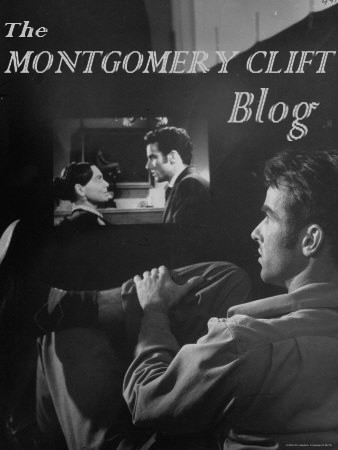

.-+albornoz+(4)+BLOG.jpg)
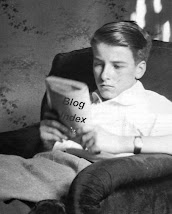
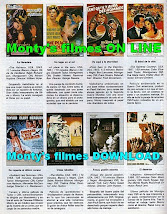


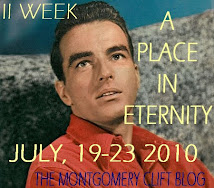










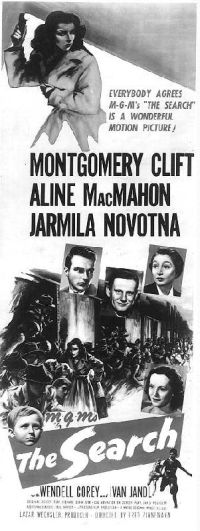

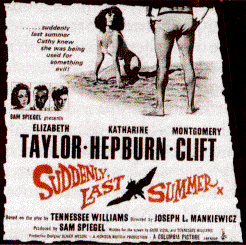


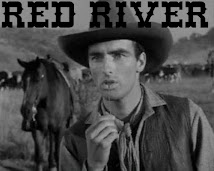
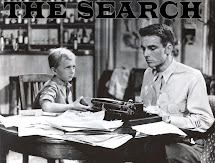

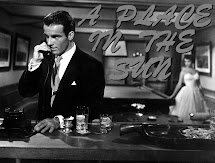2.jpg)
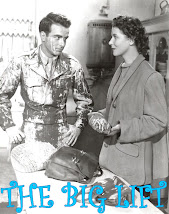.jpg)
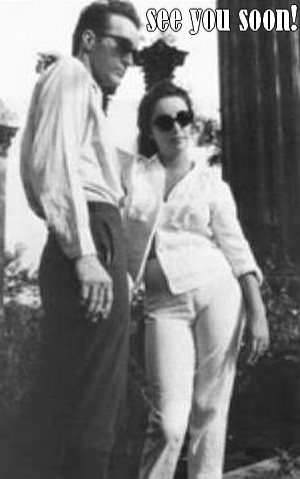

.jpg)


No hay comentarios:
Publicar un comentario